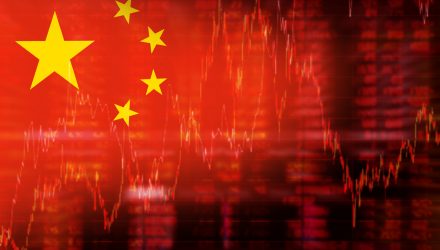Five Chinese companies have voluntarily opted to delist from the New York Stock Exchange and U.S. markets, reported Reuters, in a move that could be positive for the ongoing audit dispute between China and the U.S.
The companies are all Chinese state-owned enterprises (SOEs), meaning that the Chinese government has a level of involvement with the company, ranging anywhere from being a stockholder to having a degree of control over the company.
Sinopec, a Chinese oil giant, Aluminium Corporation of China, PetroChina, China Life Insurance, and Sinopec Shanghai Petrochemical (a separate business entity from Sinopec itself) will be delisting their American Depository Shares (ADRs) by the end of August. These state-owned companies will maintain their current listings in both Mainland China as well as Hong Kong in a move that could be beneficial for regulators, according to Brendan Ahern, CIO at KraneShares.
“We have long argued that a potential solution to Holding Foreign Companies Accountable Act (HFCAA) would be the delisting of SOEs as their audit reviews may indeed contain sensitive information,” Ahern wrote on the China Last Night blog. “Private companies have long stated that they have nothing to hide from an audit review conducted by the Public Company Accounting Oversight Board (PCAOB).”
Regulators on both sides have yet to come to an official agreement that would prevent the delisting of Chinese companies beginning in 2024 under the HFCAA, which requires that foreign companies allow U.S. auditors access to their audit reviews. Ahern sees it as an obvious problem for companies that are partially government-owned as the audit could include government information, such as the number of subsidies it has in the company.
“This could be a very good development for a solution to the HFCAA,” Ahern explained.
Investing Without Delisting Risk With KBA
For investors that are looking for exposure to China but wish to gain it without the threat of delisting in the U.S., investing in China’s A-shares market could be one option to consider. The A-shares markets have historically only been available to Chinese residents and consist of mainland Chinese companies that trade on the two local Chinese exchanges, the Shenzhen Stock Exchange and the Shanghai Stock Exchange.
The KraneShares Bosera MSCI China A Share ETF (KBA) invests in Chinese A-shares — specifically those from the MSCI China A 50 Connect Index.
This fund seeks to capture 50 large-cap companies that have the most liquidity and are listed on the Stock Connect while also offering risk management through the futures contracts for eligible A-shares listed on the Stock Connect. The index utilizes a balanced sector weight methodology to give exposure to the breadth of the Chinese economy.
KBA carries an expense ratio of 0.56% with fee waivers that expire on August 1, 2023.
For more news, information, and strategy, visit the China Insights Channel.

